
-
Find the right food for your petTake this quiz to see which food may be the best for your furry friend.Find the right food for your petTake this quiz to see which food may be the best for your furry friend.Featured products
 Adult Small & Mini Lamb Meal & Brown Rice Recipe Dog Food
Adult Small & Mini Lamb Meal & Brown Rice Recipe Dog FoodFor the faster metabolism of Small & Mini dogs
Shop Now Hill's Science Diet Adult Oral Care Chicken, Brown Rice & Barley Recipe Dog Food
Hill's Science Diet Adult Oral Care Chicken, Brown Rice & Barley Recipe Dog FoodClinically proven kibble technology to reduce plaque & tartar build-up
Shop Now Adult 7+ Small & Mini Chicken & Brown Rice Recipe Dog Food
Adult 7+ Small & Mini Chicken & Brown Rice Recipe Dog FoodFor the unique nutritional needs of mature Small & Mini dogs
Shop NowFeatured products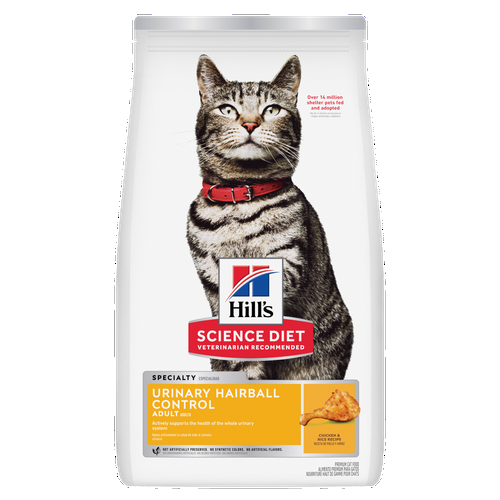 Adult Urinary Hairball Control Chicken & Rice Recipe Cat Food
Adult Urinary Hairball Control Chicken & Rice Recipe Cat FoodActively supports the health of the whole urinary system
Shop Now Adult Indoor Chicken Recipe Cat Food
Adult Indoor Chicken Recipe Cat FoodSupports energy level and beautiful fur in indoor cats
Shop Now Hill's Science Diet Adult Sensitive Stomach & Skin Dog Food
Hill's Science Diet Adult Sensitive Stomach & Skin Dog FoodHighly digestible recipe, gentle on stomachs. Nourishes skin & promotes a lustrous coat
Shop Now -
Featured articles
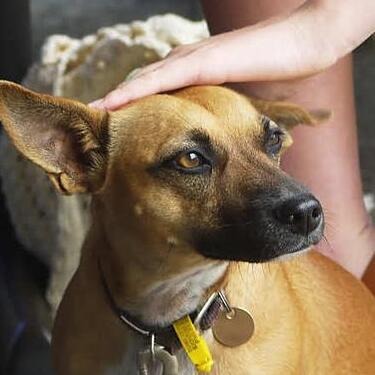 15 Pet-Friendly Cities Ideal for a US Road Trip
15 Pet-Friendly Cities Ideal for a US Road TripCheck out our list of pet-friendly U.S. cities that are excellent travel options, offering off-leash dog parks and pet-friendly restaurants & hotels.
Read More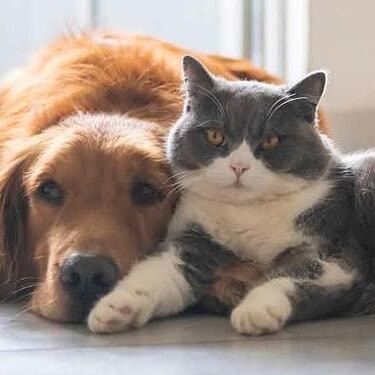 Easy DIY Dog & Cat Toys: Nine of Our Favorites
Easy DIY Dog & Cat Toys: Nine of Our FavoritesBrowse this comprehensive guide for several of our favorite DIY dog and cat toys that are sure to put a little pep in your pet's step.
Read More My Pet Ate a Lizard — What Should I Do?
My Pet Ate a Lizard — What Should I Do?Learn what to do if your pet eats a lizard, including whether they can be toxic and symptoms to keep an eye on when they've swallowed one.
Read More -


If you've ever taken your dog out in the snow, chances are that they sneaked a lick (or a chomp) of the cold stuff. But why do dogs eat snow? And is it safe? If you've ever been concerned that your dog ate snow, here's what you need to know.
Why Do Dogs Eat Snow?

Only dogs know for certain why they enjoy eating snow, but there are several possible reasons for the behavior:
- They're thirsty: Unless you've just filled your pup's water bowl, their water might not be the freshest. But it doesn't get much fresher or cleaner than newly fallen snow.
- It's in their DNA: Before dogs were domesticated, their ancestors in colder climates often had to rely on eating snow to hydrate. It is possible that that innate behavior still exists coded in their DNA thousands of years later.
- They have a health condition: If your pooch eats snow obsessively, check with your veterinarian. It could be a sign of Cushing's disease or thyroid or kidney problems, says Petful. PetHelpful adds that some dogs eat snow for the same reason they eat grass: to induce vomiting in order to settle an upset stomach.
- They just like it: It's probably curiosity that first prompts a dog to nibble on snow. Whether it's the taste, the texture or the cold sensation, something about that first bite provides enough pleasure to encourage them to keep doing it.
Is It Safe for Dogs to Eat Snow?
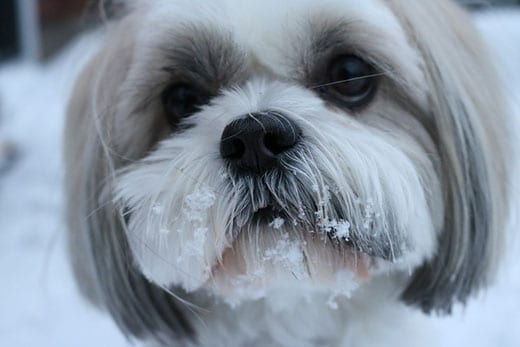
As long as the snow is clean, it's safe for dogs to eat in small quantities. The danger comes primarily from toxic substances, such as ice melt or antifreeze, that might contaminate the snow. And eating snow in large quantities could dangerously lower your dog's body temperature.
Another danger is that your dog might bite down on or consume harmful objects, such as sticks, rocks or trash that's buried beneath the snow. These could break teeth, cause choking or, if swallowed, cause intestinal damage or blockage that could necessitate surgery.
Never let your dog eat dirty, discolored or partially melted snow, or snow that covers roads, sidewalks or other heavily trafficked areas. And under no circumstances should you allow your dog to eat snow that's been driven on or piled up by a snowplow. If your dog ate snow that gives you cause for concern, give your vet a call.


Tasty Tips
How to Discourage Your Dog From Eating Snow
It might be impossible to prevent dogs from eating snow entirely, but here are a few things you can do to discourage your dog from turning the next snowfall into a buffet:
- Provide them with plenty of clean drinking water that you refresh regularly.
- Use a leash when walking your dog in the winter. Try to avoid snow, especially puddles of melted snow, as these are more likely to contain chemicals.
- Bring a toy or treats on your walk to distract your dog from the snow.
- Either put booties on your dog when going out or thoroughly clean their paws when they return inside from the snow.
It's normal for dogs to enjoy noshing on snow once in a while. Just remember that it's up to you, as a pet parent, to make sure they don't consume anything harmful along with the snow. Of course, despite your best efforts, your dog might find a way of eating something they shouldn't. If this happens, don't panic. Instead, seek your vet's opinion.


Jean Marie Bauhaus is a pet parent, pet blogger, and novelist from Tulsa, Oklahoma, where she usually writes under the supervision of a lapful of fur babies.
Related products

For the unique nutritional needs of mature Small & Mini dogs

For the faster metabolism of Small & Mini dogs

Clinically proven kibble technology to reduce plaque & tartar build-up

Improves everyday ability to get up & go
Related articles

Your dog's coat and skin are a big part of your dog's overall health. Ensure you keep your dog's coat healthy, by following these simple tips.

Understand the role that Omega-6 and Omega-3 fatty acids play in your dog's overall health, and how you can ensure they are getting enough.
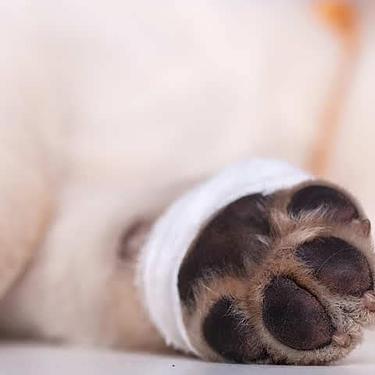
Learn basic steps & precautions for treating a cut on your dog, including what you can put on the cut, and when you should take them to the vet.

Discover how the field of dog science is giving us more and more insights into the inner workings of our furry best friends.

Put your dog on a diet without them knowing
Our low calorie formula helps you control your dog's weight. It's packed with high-quality protein for building lean muscles, and made with purposeful ingredients for a flavorful, nutritious meal. Clinically proven antioxidants, Vitamin C+E, help promote a healthy immune system.
Put your dog on a diet without them knowing
Our low calorie formula helps you control your dog's weight. It's packed with high-quality protein for building lean muscles, and made with purposeful ingredients for a flavorful, nutritious meal. Clinically proven antioxidants, Vitamin C+E, help promote a healthy immune system.

